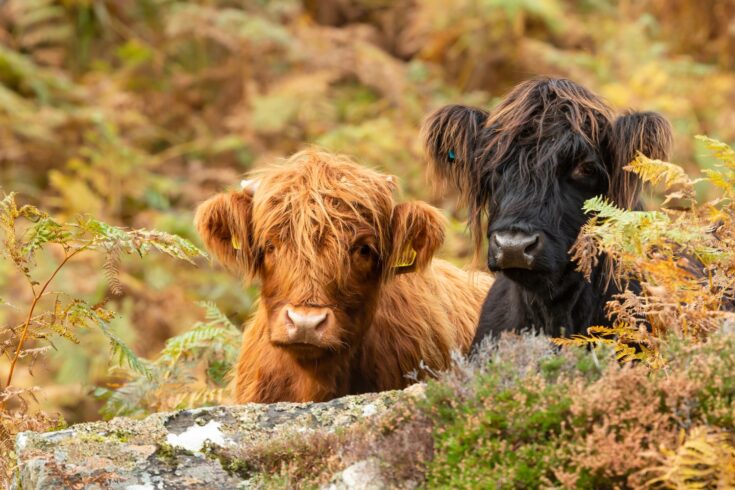The Biotechnology and Biological Sciences Research Council (BBSRC) and Department for Environment, Food and Rural Affairs (Defra) have announced £9 million funding for phase two of the ground-breaking endemic livestock disease initiative.
The £11.5 million initiative commenced in 2021 and seeks to transform the UK livestock sector by reducing the burden of endemic diseases on animal health, welfare and productivity.
A collective approach
Highlighting the significance of the UK livestock endemic disease challenge, the initiative is backed by key UK partners, including:
- BBSRC
- Defra
- Department of Agriculture, Environment and Rural Affairs
- Scottish Government
Developed in consultation with academia, industry and policymakers, the endemic livestock disease initiative focuses on fostering collaborative research between academia, industry and end-users.
On-farm solutions
The goal is to deliver innovative on-farm solutions that will effectively mitigate the impact of endemic diseases on the UK livestock sector.
To date, the initiative has successfully facilitated the formation of 45 new industry partnerships, forging strong collaborative networks. Moreover, it has engaged with over 170 end-users including farmers, veterinarians and policymakers to ensure that the research outcomes directly address their practical needs.
Phase two of the initiative is set to kickstart this summer, with a total of 14 ambitious projects receiving funding. These projects span the breadth of the livestock sector, encompassing:
- pigs
- poultry
- beef
- sheep
- dairy
Of particular note is the significant emphasis on digital agriculture and machine learning, with nine of the projects incorporating cutting-edge technologies to advance disease monitoring, diagnosis and prevention.
Ground-breaking advancements
Professor Guy Poppy, Interim Executive Chair at BBSRC, said:
Endemic diseases in the UK livestock sector pose significant challenges to animal welfare, productivity and sustainable farming practices.
By bringing together the collective expertise of academia, industry and end-users, we are confident this initiative will lead to ground-breaking advancements in disease control, fostering a healthier and more productive livestock sector.
Testing new solutions
UK Chief Veterinary Officer, Christine Middlemiss, said:
The UK remains committed to working collaboratively with farmers to overcome infectious animal disease. I welcome the second phase of this exciting research initiative.
This funding brings together farmers, vets and researchers to develop and test new solutions to some of our most serious animal health challenges on farm, making a real difference to the health and wellbeing of the UK’s livestock.
Pioneering projects
The 14 pioneering projects receiving funding from phase two of the initiative represent the cutting-edge of research.
The projects harness the potential of digital technologies, advanced diagnostics and innovative vaccine development to address the challenges of endemic disease in UK livestock.
Further information
The 14 projects
Forestry by-products as novel therapeutics for parasite control in livestock
Principal investigator: Dr Spiridoula Athanasiadou, Scotland’s Rural College
Monitoring the gut microbiome via artificial intelligence (AI) and omics: a new approach to detect infection and anti-microbial resistance and support novel therapeutics in broiler precision farming
Principal investigator: Dr Tania Dottorini, University of Nottingham
AI to monitor changes in social behaviour for the early detection of disease in dairy cattle
Principal investigator: Professor Andrew Dowsey, University of Bristol
Preventing drops in egg production in UK free-range flocks: understanding the interactions between farm practices, flock coinfections and immunity
Principal investigator: Dr Kannan Ganapathy, University of Liverpool
Next generation vaccines for bovine respiratory disease complex utilising virus vaccine vectors to target both bacterial and viral pathogens
Principal investigator: Dr William Golde, Moredun Research Institute
Precision solutions for controlling fasciolosis in sheep
Principal investigator: Dr Rhys Jones, Aberystwyth University
Digital platform for sustainable health: a step change in reducing endemic disease in dairy cattle
Principal investigator: Professor Jasmeet Kaler, University of Nottingham
CO-ADAPT: adaptive management of endemic coinfections in ruminant livestock under climate change
Principal investigator: Professor Eric Morgan, Queen’s University of Belfast
A UK platform for the control of bovine viral diarrhea: application of a novel disease simulation model to guide programme development and policy design
Principal investigator: Dr Luke O’Grady, University of Nottingham
Genetic and management solutions for lameness-associated endemic diseases in dairy cattle
Principal investigator: Professor Georgios Oikonomou, University of Liverpool
Unravelling the aetiology of stunting in UK broiler flocks through the use of novel microdissection and viral meta-transcriptomic sequencing tools
Principal investigator: Dr Victoria Smyth, Agri-Food and Biosciences Institute
Protecting pigs from enzootic pneumonia: rational design of safe attenuated vaccines
Principal investigator: Professor Dirk Werling, Royal Veterinary College
Delivery of rapid diagnostic tests for sustainable control of parasitic diseases in sheep and cattle
Principal investigator: Professor Diana Williams, University of Liverpool
Effects of co-infections on Marek’s disease in poultry and development of novel recombinant Marek’s disease virus vector vaccines
Principal investigator: Dr Yongxui Yao, The Pirbright Institute
Driving UK Research and Innovation’s strategic themes
Through our five-year strategy ‘Transforming tomorrow together 2022 to 2027’, UK Research and Innovation aims to harness the full power of the UK’s research and innovation system to tackle large-scale, complex challenges.
To do this, we have identified five strategic themes to enable working across disciplines and leveraging new and existing investment and activity.
Tackling infections is one of the themes. It will bolster our national defence and response capabilities by tackling infectious diseases that pose threats to people, livestock, crops and natural resources in more integrated and innovative ways.
The endemic livestock disease initiative plays a key role in helping the UK better prepare for future disease epidemics and more effectively tackle the slow-moving pandemic of antimicrobial resistance.

